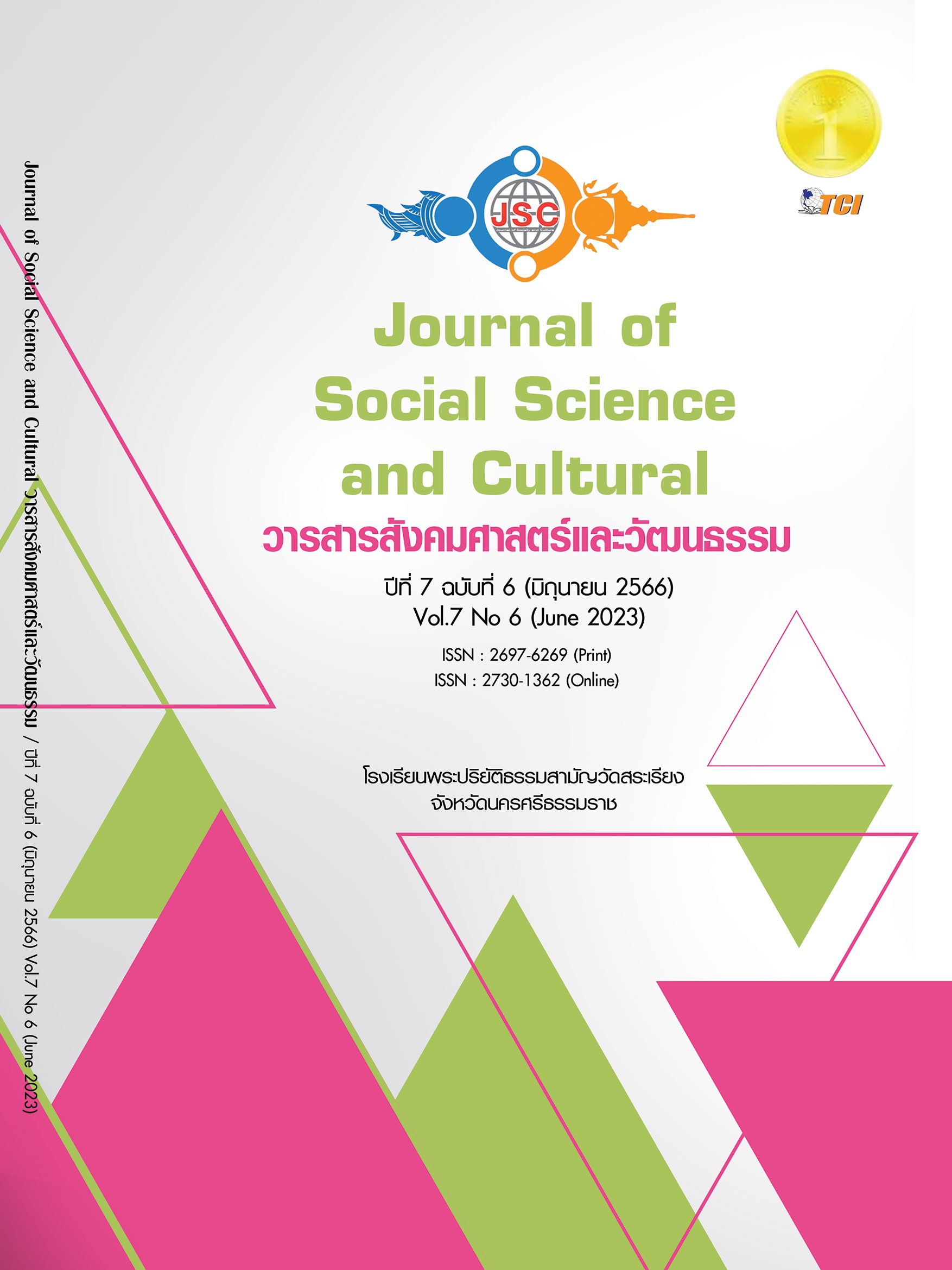THE PRESUMPTION OF INNOCENCE OF THE ACCUSED MONK IN A CRIMINAL CASE
Main Article Content
Abstract
This article was presentation about history of the presumption of innocence of the accused monk in a criminal case. In Thai society, monks act as missionaries and guide the Buddhists to live their lives in peace and harmony. which the monks will have discipline as a framework to control their behavior. When committing a criminal offense, they will also be prosecuted according to the law. When it comes to the Constitution of the Kingdom of Thailand, 2017, Section 27 states that “Persons are equal in the law. have rights and liberties and are equally protected by law Men and women have equal rights.” This also contradicts the Sangha Act of 1962, section 29 and section 30, which mention that any monk who is accused of committing a crime must renounce his monkhood. However, in prosecuting monks at present, there is still a legal problem, namely: There is no specific practice to detain or prosecute monks. which, if prosecuting or detaining monks, must be felt which, if the outcome of the case is final, it can be proved that the monk is innocent will be a problem. and causing great damage. Including not getting the right to bail the criminal justice system in Thailand currently uses an allegation system. The Constitution of the Kingdom of Thailand protects the rights of the accused in criminal cases on the presumed innocence of the accused or defendant until the final judgment that such person has committed an offence. However, as a result of the criminal justice process, the accused may seriously affect the rights and liberties of the accused.
Article Details
References
กีรวุฒิ กิติยาดิศัย. (2556). สิทธิเสรีภาพของพระภิกษุสงฆ์. รายงานนี้เป็นส่วนหนึ่งของการฝึกอบรม หลักสูตรหลักนิติธรรมเพื่อประชาธิปไตย รุ่นที่ 1 ปี 2556. กรุงเทพมหานคร: วิทยาลัยรัฐธรรมนูญ สำนักงานศาลรัฐธรรมนูญ.
ปลื้ม โชติษฐยางกูร. (2559). คำบรรยายกฎหมายคณะสงฆ์. กรุงเทพมหานคร: โรงพิมพ์มหาจุฬาลงกรณราชวิทยาลัย.
พระครูใบฎีกาทวีศักดิ์ ใต้ศรีโคตร และคณะ. (2565). สิทธิของพระภิกษุทางกฎหมายอาญา. วารสารมหาจุฬานาครทรรศน์, 9(2), 92-108.
พระพรหมคุณาภรณ์ (ป.อ. ปยุตฺโต). (2555). นิติศาสตร์แนวพุทธ. (พิมพ์ครั้งที่ 13). กรุงเทพมหานคร: วิญญูชน.
พิชนิกา โพธิ์บุญจันทร์. (2562). รัฐธรรมนูญของข้อสันนิษฐานตามกฎหมายว่าด้วยการกระทำความผิดทางอาญาในการซื้อขายหลักทรัพย์โดยใช้ข้อมูลภายใน. ใน วิทยานิพนธ์นิติศาสตรมหาบัณฑิต สาขากฎหมายธุรกิจ (ภาคภาษาอังกฤษ). มหาวิทยาลัยธรรมศาสตร์.
ราชกิจจานุเบกษา. (2560). รัฐธรรมนูญห่งราชอาณาจักรไทย. เล่ม 134 ตอนที่ 40 ก หน้า 17 (6 เมษายน 2560).
รุจิระ บุนนาค. (22 มิถุนายน 2561). คดีอาญากับการสละสมณเพศ. หนังสือพิมพ์แนวหน้า, หน้า 14.
วัน สุวรรณพงษ์ และคณะ. (2560). แนวทางการบัญญัติข้อกฎหมาย เพื่อคุ้มครองพระพุทธศาสนา. Dhammathas Academic Journal, 17(3), 17-24.
วุฒินันท์ กันทะเตียน. (2560). พระสงฆ์เป็นโจทก์ฟ้อง: ยึดพระวินัยหรือยึดกฎหมายบ้านเมือง. วารสารมหาจุฬาวิชาการ, 3(2), 61-83.
ศรันยา สีมา. (2564). การสอบสวนในคดีอาญา. รายการร้อยเรื่องเมืองไทย. กรุงเทพมหานคร: สำนักงานเลขาธิการสภาผู้แทนราษฎร สำนักวิชาการ สถานีวิทยุกระจายเสียงและวิทยุโทรทัศน์รัฐสภา.
ศูนย์วิจัยและให้คำปรึกษา คณะนิติศาสตร์ มหาวิทยาลัยธรรมศาสตร์. (2558). การศึกษาเปรียบเทียบความผิดทางอาญาของนิตบุคคลและผู้แทนนิติบุคคลของประเทศไทยกับต่างประเทศ ในประชาคมอาเซียน. กรุงเทพมหานคร: สำนักงานอัยการพิเศษฝ่ายสถาบันกฎหมายอาญา สำนักงานวิชาการ สำนักงานอัยการสูงสุด.
สมชาย บุญคงมาก และภูภณัช รัตนชัย. (2561). ปัญหาการสละสมณเพศของพระภิกษุตามพระราชบัญญัติคณะสงฆ์ พ.ศ. 2505: ศึกษากรณีการใช้อำนาจดุลยพินิจของเจ้าหน้าที่ของรัฐในกระบวนการยุติธรรม. วารสารมนุษยศาสตร์และสังคมศาสตร์ นายเรืออากาศ, 6 (ธันวาคม 2561), 11-24.
สมเด็จพระมหาสมณเจ้า กรมพระยาวขิรญาณวโรรส. (2500). หนังลือเรียนนักธรรมชั้นตรี วิชาวินัยมุข. กรุงเทพมหานคร: โรงพิมพ์มหามกุฎราชวิทยาลัย.
แสวง อุดมศรี. (2539). การปกครองคณะสงฆ์ไทย. กรุงเทพมหานคร: โรงพิมพ์จุฬาลงกรณ์ราชวิทยาลัย.
หยุด แสงอุทัย. (2548). ความรู้เบื้องต้นเกี่ยวกับกฎหมายทั่วไป. (พิมพ์ครั้งที่ 16). กรุงเทพมหานคร: ประกายพรึก.


